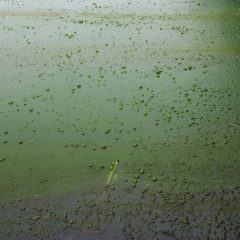Rural vs. Urban Dwellers
“It is not possible to separate the problem of controlling rural water pollution from the model of development that the Chinese state has been following.”
(Wang, M., Webber, M., Finlayson, B., & Barnett, J., 2008, p. 657).
Since China’s Cultural Revolution and the beginning of Deng Xiaoping’s Open Door Policy, industrial development and economic growth have been prioritized in both rural and urban areas in China, but also specifically in the Lake Dianchi area.
While urban and rural areas have experienced similar demands to industrialize, rural communities have suffered the pollution repercussions of industrialization due to weak enforcement and weak regulation of environmental policies—rural communities have been neglected by environmental protection policies that would monitor pollution control facilities and waste treatment because of the remoteness and greater emphasis on economic growth from these locations. Furthermore, twenty-six ethnic minority groups make up the population of these vulnerable rural communities living aorund Lake Dianchi (PRC 2008).
Policy Implementation, Enforcement, and Compliance
While both urban and rural communities have been pushed to industrialize, rural communities have been experiencing the most concerning repercussions.
“China has some of the toughest environmental protection laws in the world… with marked decline of urban pollution. However, these efforts rarely reach the rural areas, where environmental policy is not effective.”
(Wang, M., Webber, M., Finlayson, B., & Barnett, J., 2008, p. 648-649)
The corruption in governance and monitoring of environmental protection policies in rural settings in juxtaposition with the success of these policies in urban settings addresses issues of power and privilege. Since urban enterprises are better monitored, they have produced less pollution because of the greater efficacy of law enforcement and thus have had better policy compliance.
The current water pollution control system relies on a top-down approach to monitoring, control and supervision. While this may work in cities where industries are spatially concentrated and pollution-monitoring systems are well developed, it does not work in the rural areas where water polluting industries are dispersed in villages and have close associations with local government officials (Wang, M., Webber, M., Finlayson, B., & Barnett, J., 2008, p. 657).
However, the Chinese government has slowly been achieving restoration water quality goals for Lake Dianchi. October 2016 marked one of the first controlled commercial fishing seasons in Lake Dianchi after years of not permitting fishing due to poor water quality levels.
Improvements, Accomplishments, and the Current State
Lake Dianchi is “thought to be gradually growing cleaner, healthier, and more conducive to life” after numerous new governmental policies have been implemented, a great sum of investments going towards lake clean up efforts, the introduction of certain fish species to the lake to control algae levels, and redirecting water from the Yangtze River to the lake to increase clean water levels (Scally, 2016).
While the presence of toxins and metal waste in the fish is still being questioned, officials are reportedly satisfied with the progress of the rehabilitation of water quality in Lake Dianchi (Scally, 2016). This conveys that Chinese law enforcing agents are capable of minimizing rural industrial water pollution, but only if the government implements this as a priority goal for all rural industrial polluting practices. Additionally, this is only possible if rural industrial enterprises have adequate financial resources to maintain pollution-controlling equipment like urban industrial enterprises do.
Power, Privilege, and Water Pollution in the Greater Context of China
The following video not only explains the current water crisis in China, but it also provides a glimpse into how Chinese citizens are in a position of vulnerability to one another (based on where civilians live throughout the country) and as a nation suffering from such a crisis.
Works Cited
PRC Kunming Facts and District Guides. (2008). Retrieved from http://www.prc.study.com/kunming_city_facts_and_districts.shtml
Scally, P. (2016). Fishing ‘season’ ends on slowly reviving Dianchi Lake. [Blog post] Retrieved from http://www.gokunming.com/en/blog/item/3833/fishing_season_ends_on_slowly_reviving_dianchi_lake
Wang, M., Webber, M., Finlayson, B., & Barnett, J. (2008). Rural industries and water pollution in China. Journal of Environmental Management, 86(4), 657. doi:10.1016/j.jenvman.2006.12.019
